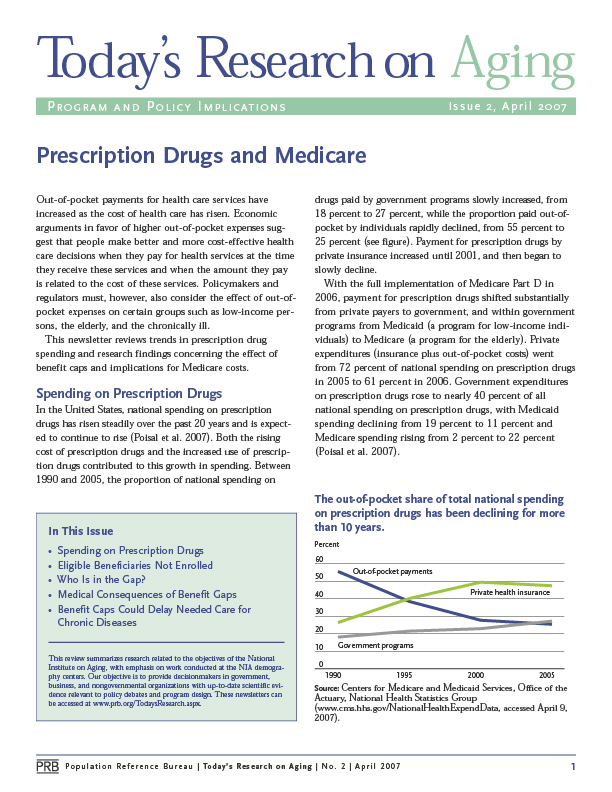This e-newsletter is the second in a series funded by the University of Michigan Demography Center.
Out-of-pocket payments for health care services have increased as the cost of health care has risen.
Economic arguments in favor of higher out-of-pocket expenses suggest that people make better and more cost-effective health care decisions when they pay for health services at the time they receive these services and when the amount they pay is related to the cost of these services. Policymakers and regulators must, however, also consider the effect of out-of-pocket expenses on certain groups such as low-income persons, the elderly, and the chronically ill.
This newsletter reviews trends in prescription drug spending and research findings concerning the effect of benefit caps and implications for Medicare costs.


 ">
">